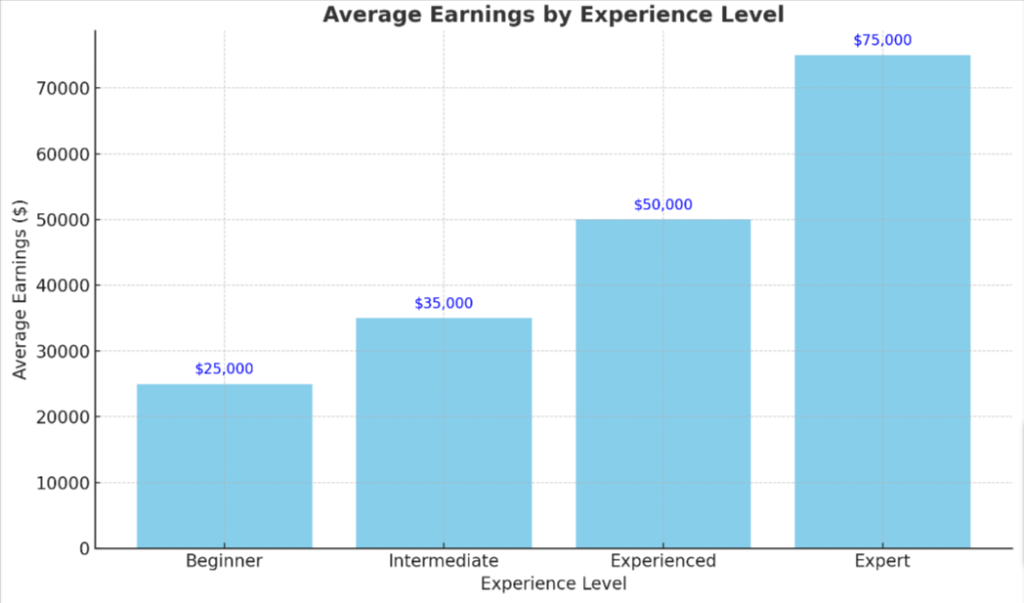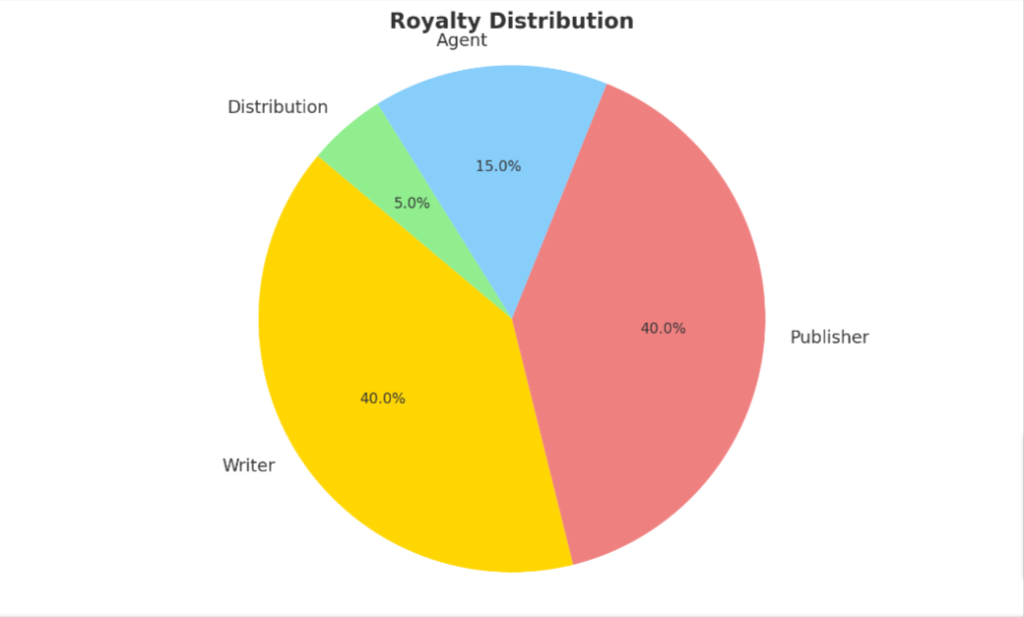Mastering Negotiation: Securing Your Worth as a Writer
Navigating pay and contract negotiations as a writer can often feel like a minefield. Did you know, many writers undervalue their work leading to lower than average earnings? This blog will demystify the art of negotiating your writing contracts and securing proper compensation for your hard work.
Ready to unlock the secret to better deals? Let’s get started!
Key Takeaways
- Negotiating pay and contracts as a writer is crucial for financial gain, clarifying expectations, and protecting your rights.
- Researching and knowing your worth helps you negotiate fair compensation that reflects the value of your work.
- Clear and confident communication is key to effective negotiation, stating your payment, deadlines, rights, and other important factors clearly.
- Seek legal advice before finalizing negotiations to ensure understanding of terms and conditions being offered.
The Importance of Negotiating Pay and Contracts for Writers
Negotiating pay and contracts for writers is crucial for several reasons: it can lead to improved financial gain, clarify expectations and terms, and protect your rights as a writer.
Improved financial gain
Negotiating contracts often leads to improved financial gain. This means that writers can secure higher pay from their projects and ensure stability in their income stream. Effective negotiation skills allow a writer to discuss terms confidently, with the power to set limits on work demands relative to payment offers.
Higher earnings don’t just boost your bank account, they also provide validation for your talent and hard work invested into each project. With increased financial prosperity, writers have more flexibility for creative endeavors without the constant worry of meeting basic monetary needs.
Clarifying expectations and terms
Clarity in expectations and terms is a fundamental step in the contract negotiation process for writers. It lets both parties know what they’re signing up for, curbs potential misunderstandings, and fosters mutual respect.
The writer’s guide to negotiating pay should include comprehending jargons such as ‘royalties’, ‘intellectual property’, ‘rights being offered’ that often appear in book contracts or magazine agreements.
It means understanding when you can anticipate payments and how those amounts are calculated. You might also want to discuss deadlines, scope of work, revisions and whether or not your name gets credited on the final product – especially important for ghostwriters!
Therefore, clarifying expectations and terms ensures getting paid what you’re worth while protecting your rights as a writer during financial discussions.
Protecting your rights as a writer
Maintaining the integrity of your work begins with safeguarding your rights as a writer. These legal safeguards ensure that you retain control over how your content is used and reproduced.
The first line of defense often comes in the form of well-crafted contracts that detail usage rights, intellectual property, and other key provisions.
Obtaining clarity on copyright laws forms a significant component of protecting your writing. It’s an absolute necessity to understand who holds the rights to reproduce or adapt your work for different formats like audiobooks, film or foreign language translations.
Even when navigating negotiations in the digital age, stringent steps need to be taken to protect online content from unauthorized use.
Tips for Negotiating Pay and Contracts
Research and know your worth, communicate clearly and confidently, understand the terms and rights being offered, and consider seeking legal advice.
Research and know your worth
Knowing your worth is essential when negotiating pay and contracts as a writer. Take the time to research and understand the current market rates for your type of work. This includes knowing what other writers with similar experience and skills are being paid.
By arming yourself with this knowledge, you can confidently negotiate for fair compensation that reflects the value of your work. Don’t undersell yourself or settle for less than you deserve – know your worth and stand firm during negotiations.
Communicate clearly and confidently
To negotiate effectively, it is crucial for writers to communicate their needs clearly and confidently. This means being assertive in expressing your expectations and desired terms.
Use straightforward language and avoid ambiguity or hesitation. Clearly state what you want in terms of payment, deadlines, rights, and any other important factors related to the contract.
Confidence in your communication will convey professionalism and help establish a strong foundation for negotiations. Remember that effective communication is key to achieving a mutually beneficial agreement with publishers or clients.
Understand the terms and rights being offered
To negotiate effectively, it’s crucial to understand the terms and rights being offered in a contract or agreement. Take the time to thoroughly read and comprehend all aspects of the deal before making any decisions.
Be aware of what you are entitled to, such as payment structure, royalties, copyright ownership, and any other benefits or obligations outlined in the contract. This understanding will enable you to confidently advocate for your rights and negotiate for fair compensation.
Don’t hesitate to seek clarification if anything is unclear or ask for modifications that align with your needs as a writer.

Consider seeking legal advice
Before finalizing any pay or contract negotiations, it may be wise to consider seeking legal advice. Consulting with a lawyer who specializes in contract law can help ensure that you fully understand the terms and conditions being offered to you.
They can also provide guidance on protecting your rights as a writer and negotiating fair compensation. By seeking legal advice, you can navigate negotiations with confidence, knowing that you have expert support behind you.
Navigating Negotiations in the Digital Age
Navigating Negotiations in the Digital Age can be challenging, but it’s crucial for writers to understand new platforms and technologies, negotiate fair compensation for online content, and protect their copyright and intellectual property.
Understanding new platforms and technologies
With the rise of new platforms and technologies, writers need to stay up-to-date and adapt their negotiation strategies accordingly. These platforms offer unique opportunities for reaching larger audiences and maximizing profits.
However, they also come with their own set of challenges, such as understanding how to negotiate fair compensation for online content. It’s essential for writers to familiarize themselves with these new platforms and technologies in order to navigate negotiations successfully and protect their copyright and intellectual property.
By staying informed about the latest trends and developments, writers can effectively negotiate contracts that reflect the value of their work in this digital age.
Negotiating fair compensation for online content
When negotiating fair compensation for online content, it is important to advocate for your worth as a writer. Research and understand the market value of your work, and communicate confidently with potential clients or publishers.
Make sure that you have a clear understanding of the terms being offered, including payment rates and rights to your work. Consider seeking legal advice to protect your copyright and intellectual property.
By asserting yourself during negotiations, you can ensure that you are fairly compensated for your online content.
Protecting your copyright and intellectual property
Protecting your copyright and intellectual property is crucial as a writer. This ensures that your original work is legally protected from unauthorized use or reproduction by others.
By registering your work with the appropriate copyright office, you establish a legal record of ownership and have the right to take action against anyone who infringes upon your rights.
Additionally, it’s important to include specific clauses in contracts that protect your intellectual property, such as granting limited usage rights to publishers while retaining control over future distribution and adaptation of your work.
The Big Picture: Balancing Financial Gain with Artistic Passion and Integrity
Finding the delicate balance between earning a fair income and staying true to your artistic vision is crucial for writers.
Knowing when to stand your ground
Knowing when to stand your ground is a crucial skill in negotiations for writers. It means being confident in your worth and asserting yourself when necessary. By understanding your value as a writer and knowing what you bring to the table, you can set boundaries and negotiate for fair treatment.
Standing your ground also involves advocating for your rights as an artist, such as protecting your copyright and intellectual property. Ultimately, knowing when to stand firm demonstrates professionalism and ensures that you are not undervalued or taken advantage of in contract negotiations.
Negotiating for fair and ethical treatment
In negotiations, it’s essential for writers to strive for fair and ethical treatment. It’s crucial to advocate for yourself and ensure that you are being treated fairly throughout the negotiation process.
This includes standing up for your rights as a writer, such as maintaining control over your creative work and receiving appropriate compensation. By negotiating for fair and ethical treatment, you can establish boundaries, protect your interests, and maintain mutually respectful relationships with publishers and agents.
Collaborating with publishers and agents
Writers often rely on collaboration with publishers and agents to navigate the complex world of contracts and negotiations. This partnership can bring valuable expertise and connections to help writers secure favorable deals.
By working closely with publishers and agents, writers can gain access to opportunities that align with their artistic vision while also ensuring fair compensation. Building strong professional relationships through effective communication and understanding the needs of all parties involved is key in achieving successful collaborations in the publishing industry.
Maintaining professional relationships through negotiations
Maintaining professional relationships through negotiations is crucial for writers. It’s important to approach discussions with publishers and agents in a collaborative and respectful manner.
Keeping lines of communication open and being willing to find common ground can help build trust and foster long-term partnerships. By prioritizing professionalism, writers can navigate negotiations successfully while preserving their working relationships.

Conclusion
In conclusion, mastering the art of negotiating pay and contracts is crucial for writers. It not only leads to improved financial gain but also helps clarify expectations and protect your rights as a writer.
By researching your worth, communicating clearly, understanding terms, and considering legal advice, you can navigate negotiations in the digital age with confidence. Balancing artistic passion and integrity while standing your ground for fair treatment is key to maintaining professional relationships and ensuring that you’re paid what you’re worth.

